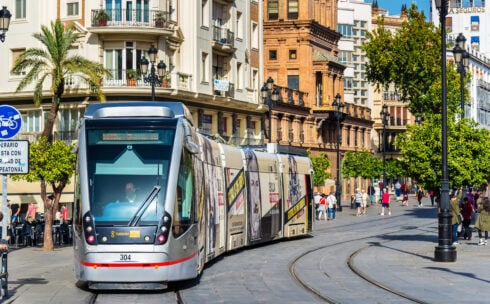SPAIN has the eighth highest number of environmental troublespots in the world, according to the Environmental Justice Atlas (EJA).
The new map pinpoints an incredible 35 ‘conflicts’ around the country that are of major concern.
The majority of these are linked to industrial and building projects, as well as waste management sites.
However, friction over tourism and recreation projects are also common, particularly in Andalucia.
Two projects, in particular – long highlighted by the Olive Press – are on the list: the Valdevaqueros hotel and housing project in Tarifa and the continuing saga over the Almoraima estate sell off near Sotogrande.
Other major flashpoints are a waste incineration plant in Cordoba and a Huelva industrial chemical complex.
The atlas, created by 23 global organisations, maps out sites where there is conflict due to a project’s ‘damaging effects’ on the environment.
“The atlas illustrates how ecological conflicts are increasing around the world, driven by material demands fed primarily by the rich and middle class,” said Professor Joan Martinez-Alier, of the Autonomous University of Barcelona, who coordinated the project.
The map’s creator EJOLT notes, in particular, how the problems of pollution are felt most strongly among poorer communities.
“The most impacted are poor, marginalised and indigenous communities, who usually do not have the political power to pursue justice and health,” explained Martinez-Alier.
The map allows users to browse the world’s environmental conflicts, by country, commodity, company involved and type of conflict.
India is home to the highest number of conflicts, with 112, followed by Colombia, with 72, and Brazil and Nigeria, both with 58.
The rest of the top ten are Ecuador, 48, Turkey, 46, United States, 36, Spain, 35, Argentina, 32, and Peru, 31.
EJOLT supports the work of environmental organisations worldwide, uniting scientists, activists, organisations, and think-tanks to prevent the exploitation of communities affected by pollution.
Visit the site at www.ejatlas.org
Click here to read more News from The Olive Press.






Interesting to note that there are no such conflicts in China. I doubt any environmental protester agains the new waver of coal fired power stations, or the destructive dams which are drowning whole cities would last longer than a .22 bullet in the back of the neck. Russia is also fairly clear. The map might in fact be a proxy for “freedom to protest”.
Thank you for the comment. In fact, we are half way in the EJOLT Atlas (www.ejatlas.org), we are reaching one thousand conflicts but our objective, for March 2015, is to reach if possible 2000 cases, with more even geographical coverage, particularly in Asia. jma